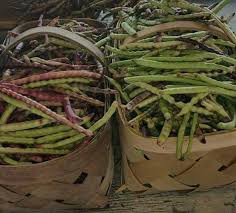Saying "No"
No one teaches a child to say “no.” It comes naturally. A two-year-old spouts “no” like a spring rain sprouts weeds. If you could enter that child’s mind (shudder) you would find “no” is way to assert power, gain control, and set boundaries. If you have a strong-willed child, you know the strength behind their efforts. They can wear you down.
Every child, of course, must learn his or her “no” is not the final word. I learned early. Dr. Spock had not made it to rural Florida in my growing up years. I vividly remember telling my mother “no” as a child. She grabbed my father’s old belt and commenced to changed my “no” to “yes.” Though it would take me years to understand, my mother was preparing me for life. I needed to learn my will was not absolute.
Yet as an adult, saying “no” is an essential skill. I said “no” to some opportunities so I could say “yes” to others. I said “no” to two colleges that accepted me so I could say “yes” to the college that was the best fit. I said “no” to fraternity life so I could avoid temptations I was not strong enough to handle (nothing against fraternities, I just knew my own weaknesses). I said “no” to pastor a church plant so I could say “yes” to graduate work.
There’s nothing quite like marriage to drive home the need to say “no.” If you want your marriage to be successful and happy, you must learn to say “no” to things you want and “yes” to things that build your relationship. When children come, you have to say “no” to old ways of living so you can say “yes” to your kids. Andy Stanley tells about unpacking all his recording equipment when his kids were small and realizing that habit took up too much of his time. So, he packed it up, sold it, and invested that time with his kids. He said “no” so he could say “yes.”
If you lead any kind of organization, “no” is an essential leadership tool. I think about times we hired the wrong people at my work. In almost every instance, I was uneasy about the hire. I should have said, “no.” Instead, I thought, “Let’s give them a chance.” We did, they blew it, and I had to clean up the mess.
Wisdom is knowing when to say “no” and when to say “yes.” Before I became pastor of my present church, a church interviewed me and wanted me to be their pastor. I visited, but something didn’t feel right. I prayed. I felt no peace. I had every logical reason to say “yes.” I took the unusual step of attending a service there with my wife. When the service was over, we got in our mini-van, looked at each other and said, “No.” When my present church contacted me, I had same unease. I remember praying through the decision late one night. This time I had a peace, and we said “yes.”
“No” has a power no other word has. It sets a boundary. It refuses temptation. It steers us away from danger. “No” can break addiction.
To say “no” and mean it requires courage. It is easier to give in, avoiding all the begging and pleading to change our minds. “No” may not open as many doors as “yes,” but the doors it opens tend to be the right ones.
Jesus said “no” to three temptations. First, he said “no” to making stones into bread. He said “no” to being controlled by his appetites (Ouch). Next, he said “no” to throwing himself down from the pinnacle of the Temple. He said “no” to putting on a show. Finally, he said “no” when Satan offered him a short-cut: “I give you all the kingdoms of the world if you worship me.” He said “no” to the easy way.
To what do you need to say “no?” To whom do you need to say “no?” Could it be your path to a better life starts with a simple two letter word: “no?”


